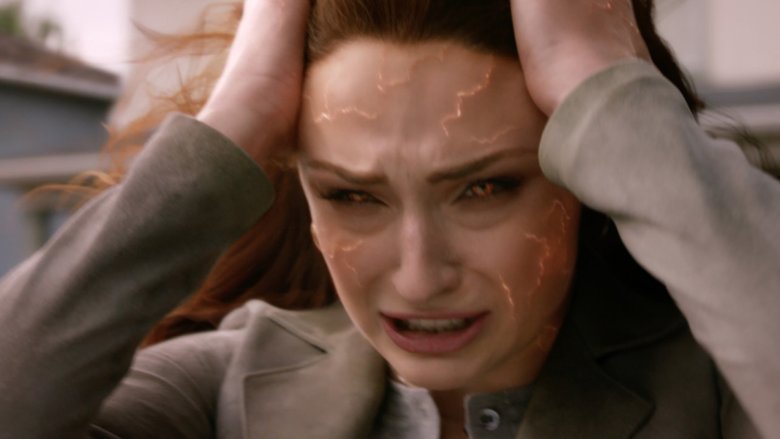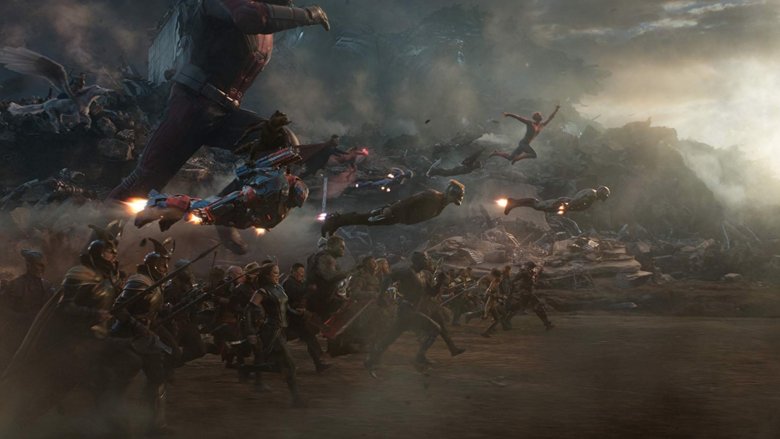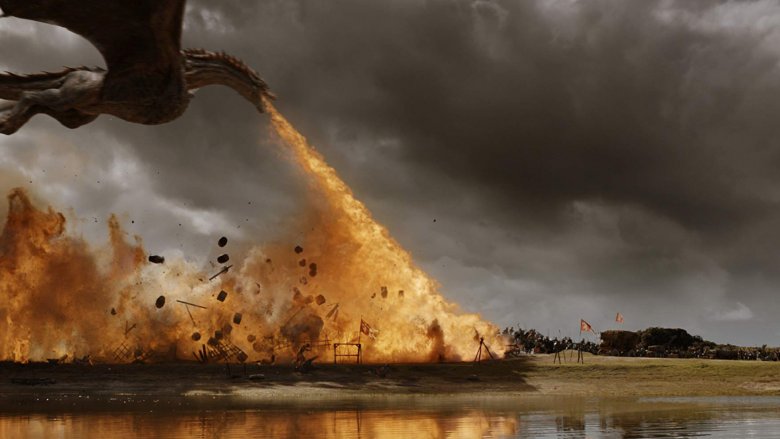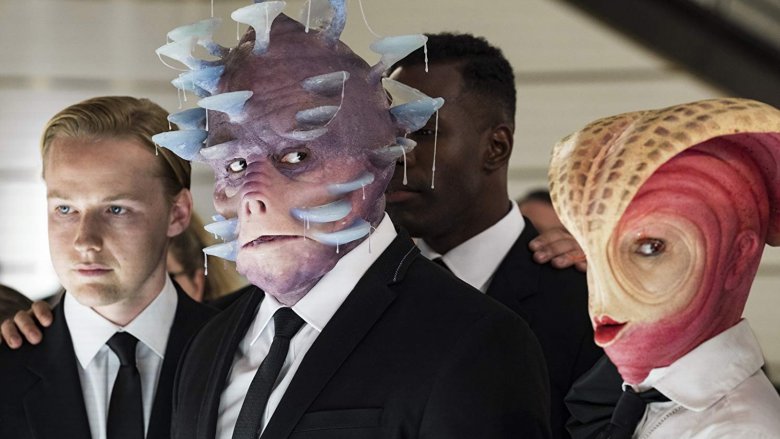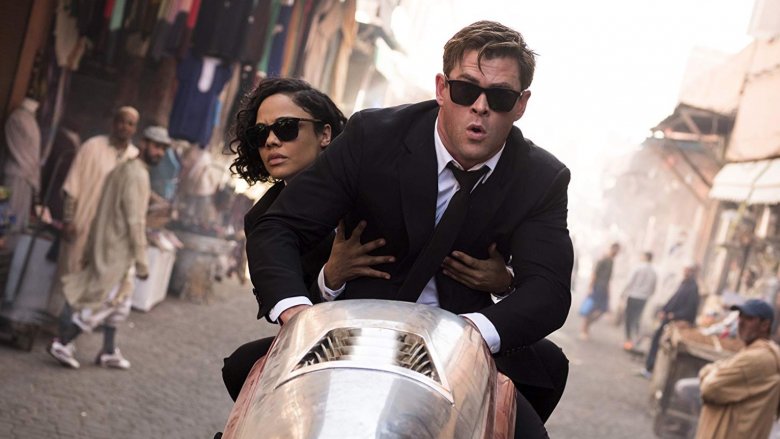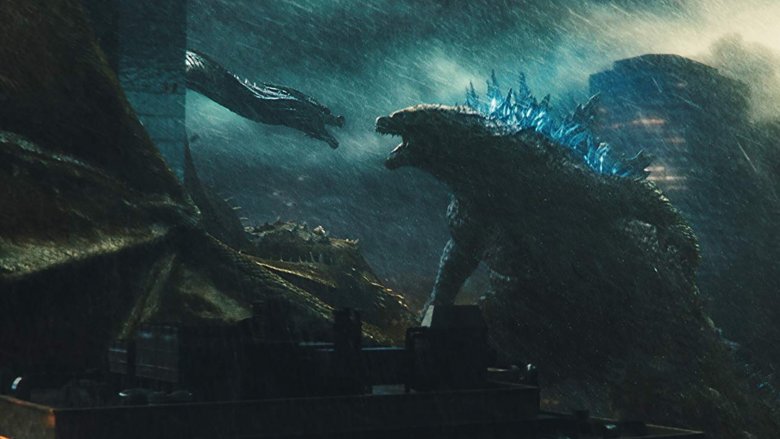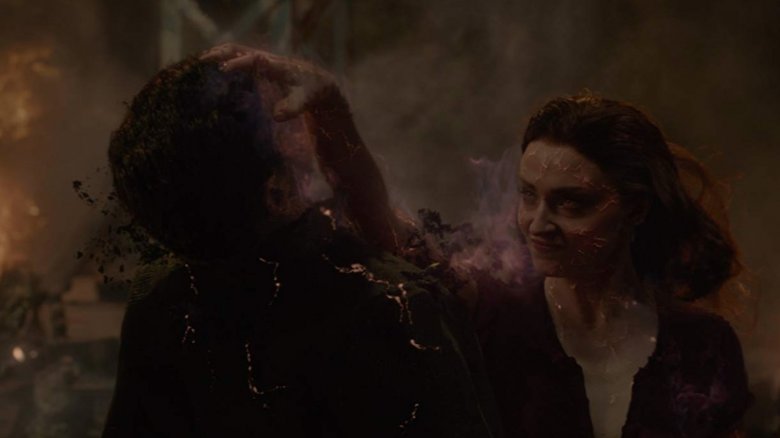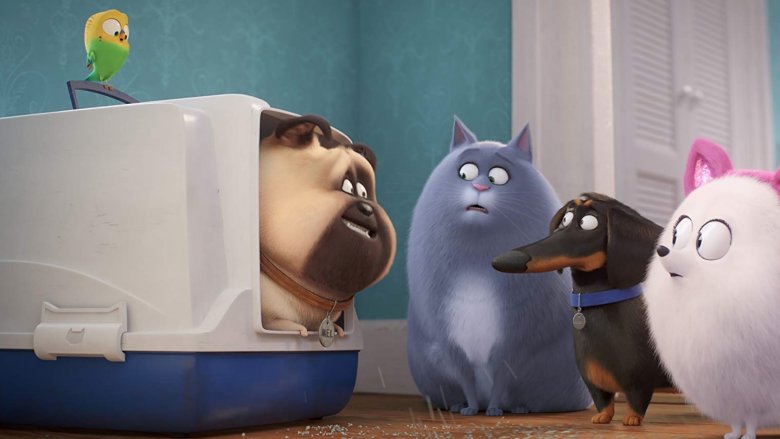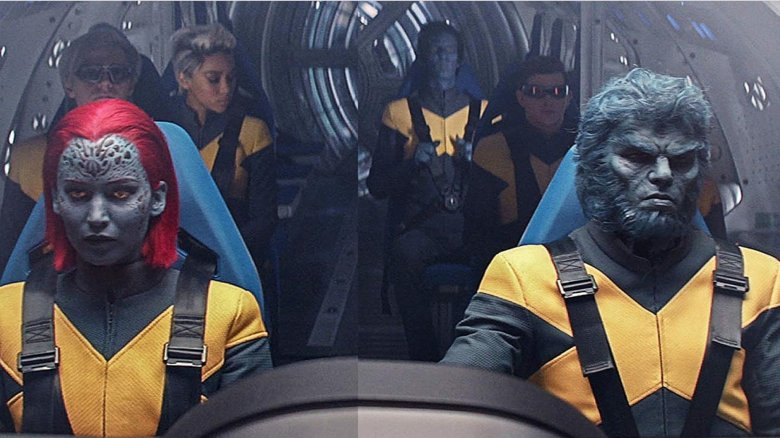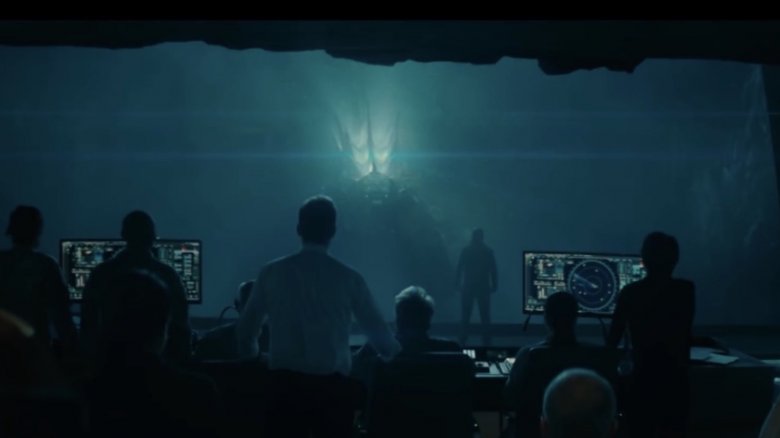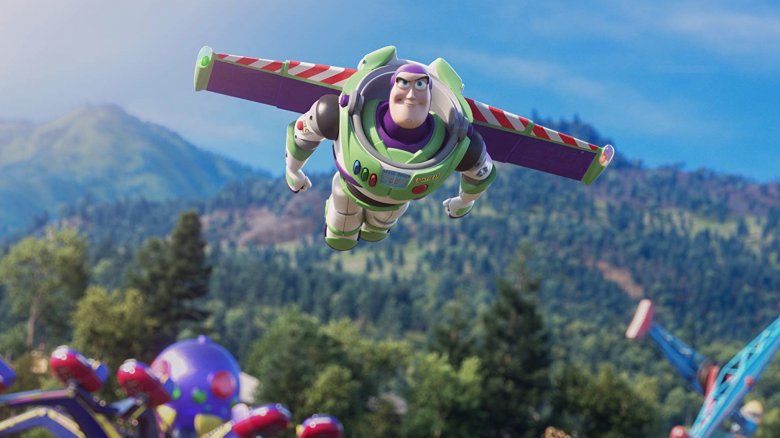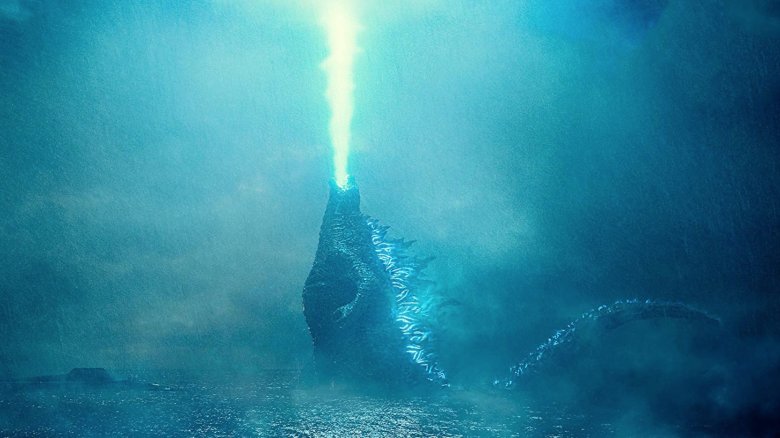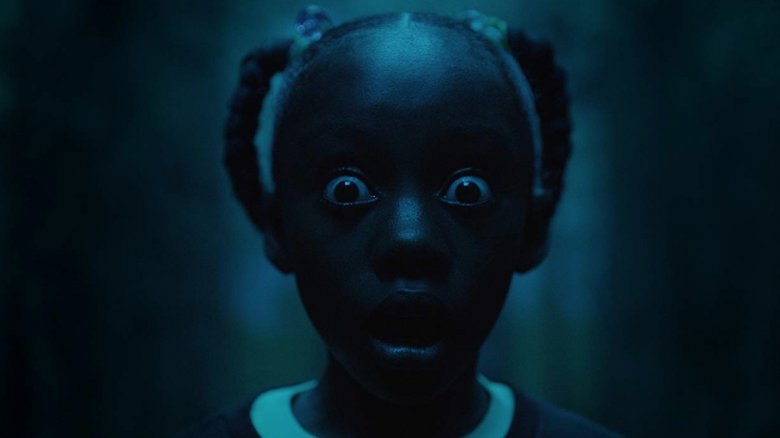Why So Many Summer 2019 "Blockbusters" Are Flopping
It wasn't supposed to be this way. After Avengers: Endgame opened to what was once an inconceivable worldwide opening weekend on April 26 (yes, spring is now the start of the summer movie season), it looked like summer 2019 would be one for the ages. It has been, but not in the way Hollywood wanted or anticipated. The season has proceeded not with a bang, but with a whimper.
Even accounting for Endgame, this summer is down from 2018 by a depressing 6%. Worldwide grosses, including China (once the saving grace for so-so franchises), are down too. Going into this year, there were some movies that were obviously going to flop, but the bloodbath at the box office has caught much of the industry by surprise. True, no studio makes a movie expecting it to tank, but weekend after weekend has seen one franchise picture after another underperform at best, and flat out fail at worst. What gives?
In an industry that bases revenue on butts in seats, this is no casual matter. Audiences deciding to stay at home and not to go to the movies during one of the industry's busiest seasons is a major cause for concern. The question is: why? There are many reasons. While these reasons don't apply to every movie that has flopped this summer (there are always caveats), there are some overarching trends we see repeated across the board. Here's why so many summer 2019 "blockbusters" are flopping at the box office.
Avengers Assemble all the money
Avengers: Endgame's opening weekend take was once unfathomable. Even the rosiest of expectations could not have anticipated $350 million in North America and $1.2 billion worldwide. Avengers: Endgame made more money in one day (heck, one hour) than some summer 2019 movies have made in several weeks. But despite the theory that a rising tide lifts all ships, that has clearly not been the case with Avengers: Endgame, which wiped out both the films that came before it (namely Shazam), and many of the ones that came after it.
The irony is, while Avengers: Endgame's box office results are mind-boggling, it's also, from certain viewpoints, making less than it probably should have (at least based on its opening weekend). No, we didn't take our crazy pills. Consider this: Avengers: Endgame will not catch up to Star Wars: The Force Awakens' #1 all-time domestic box office take despite making $110 million more its opening weekend, and it had to be re-released with new footage to have a shot at topping Avatar's worldwide total (and it's not looking like it will succeed). If it had legs like Black Panther, it would have topped a billion dollars domestically. Instead it's playing closer to Captain America: Civil War (the MCU's most front-loaded film).
Nevertheless, Avengers: Endgame did suck up all the oxygen (and money) in May. Perhaps many moviegoers simply decided they were only going to see one movie in May and naturally they chose the grand "finale" to the Marvel Cinematic Universe... they just didn't go see it more than once.
In the game of audience attention spans, you win or you die.
We said Avengers: Endgame was one the few movies that people went to go see in May, but it most certainly was not the only pop culture milestone people watched. Arguably just as big a "finale" as Avengers: Endgame was the series finale of Game of Thrones. Don't let the fan backlash dissuade you: Game of Thrones' finale was one of the biggest events in all of pop culture, with viewership figures that won't be repeated anytime soon. Sure, critics were underwhelmed and fans were disappointed (though we doubt HBO will reshoot S8 over a fan petition), the fact that millions of people were complaining about Game of Thrones meant that millions of people were watching it. Yes, hate-watching is still watching.
In fact, the finale episode of the show, "The Iron Throne," got 19.3 million viewers, which doesn't even include all of the people who watched the finale in Super Bowl-party style groups or hacked other accounts. Not bad for a show that was based on a niche novel series for sci-fi and fantasy fans. It's no surprise, then, if many people weren't going to the movies because they were too busy watching Game of Thrones. There are only so many free hours in the week, and sometimes it's better to spend them watching a show you love (or did once) than spending $10+ to see a new movie you're unsure about.
Movie marketing has been... meh
Trailers can be works of art, but their purpose is commercial: get audiences interested in a movie. Summer 2019's movie trailers didn't. There were good ones from a creative standpoint, like Pokemon: Detective Pikachu, John Wick Chapter 3, and Godzilla: King of the Monsters. Not coincidentally, these movies were also among those that performed the best ("best" being a relative term). Let's dig a little deeper: Godzilla: King of the Monsters' marketing promised a massive monster mash with the King's most famous co-stars: Mothra, Rodan, and King Ghidorah. Pretty cool... if you're familiar with these classic monsters. If you're not, there was nothing else to draw you in. Conversely, Godzilla (2014) wisely focused on the horror and human drama, not the monsters, generating an unexpectedly impressive $93 million opening weekend (compared to King of the Monsters' lackluster $47 million).
Meanwhile Men In Black: International's marketing made that movie look... pretty bland actually. Like more of the same thing we've seen before, but not as funny and missing familiar characters. Same with Dark Phoenix, which had the added burden of being Disney's redheaded stepchild (sorry, Jean) after the Fox acquisition. Disney already had one superhero franchise finale to promote, and Dark Phoenix wasn't it. Compare these to John Wick Chapter 3, which promised to continue a story audiences wanted to see, but this time packed with even more insane action sequences. Moral of the story? The marketing should tell a story, focus on the human element, and promise audiences something they haven't seen a bazillion times before.
This summer's star power lacked wattage.
While famous faces don't matter as much in special-effects extravaganzas, star power definitely can make a difference in certain films. Tom Cruise wasn't a draw in the cataclysmic turkey The Mummy, but he is a draw in Mission: Impossible. Will Smith has had a lackluster run lately, but he was a draw in Aladdin (one of the season's lone bright spots), and his absence was felt in MIB: International. Chris Hemsworth is a draw as Thor; not so much on his own. Dark Phoenix starred popular actors James McAvoy and Jennifer Lawrence, but lacked the face of the franchise, Hugh Jackman as Wolverine. And while Keanu Reeves went years without a hit after The Matrix, he's struck gold as John Wick.
In short, franchise success is less about star power ("I'm going to see X-Men because of Hugh Jackman"), and more about stars playing their signature characters ("I'm going to see X-Men because of Hugh Jackman as Wolverine"). Removing beloved characters from a pre-existing franchise and shoving new performers in, no matter how talented they are (MIB: International; Dark Phoenix) can be a hard sell. True, there are exceptions. Jurassic World re-launched the franchise with none of the original characters (though having mega-star Chris Pratt helped). But there are way more examples like Ghostbusters (2016), which featured none of the original characters and failed, which is why Sony is going back to the well once more with the original cast in Ghostbusters (2020).
Too much downtime between sequels
Some franchises are so popular they can return after a long gap. In fact, it can even be a good thing, because it gives the audience a chance to feel nostalgic for the characters and story. You can really tell how beloved a franchise is based on how well a new installment performs after a long absence. Jurassic Park, Indiana Jones, and Star Wars (twice) all had long gaps between films and did gangbusters. Meanwhile, Independence Day: Resurgence came out long after people stopped caring, and it showed.
Many of the under-performers this year fall into the latter category. Godzilla came out in 2014; Godzilla: King of the Monsters came out five years later. MIB III came out in 2012; MIB: International seven years later. Shaft came out in 2000; Shaft followed nearly 20 years later! See a trend? These are sequels to movies that came out so long ago, audiences may have forgotten the originals and/or thought the new films weren't sequels, but reboots. The apathy of "wait, they're making another one?" is a real thing.
If your previous movie was forgettable, then a distance between sequels risks confusing your audience and killing your film out of the gate. And even having beloved characters is no guarantee against the sequel gap. While Toy Story 4 had the franchise's biggest opening weekend, it still opened well below Disney's expectations. When even a Disney movie suffers from the sequel gap, you know it's a problem.
Be honest... was anybody asking for these sequels?
If a movie makes money, Hollywood is going to make a sequel. Hot take, right? And it can get awkward (just look at these cringeworthy sequel ideas). But it isn't always a purely craven money grab. It's Economics 101: if audiences like the first movie, they probably want to see a sequel. When your customer demands something, you supply it. So was anybody demanding 2019's summer sequels?
Thanks to buzz-worthy marketing, 2014's Godzilla opened to $93 million, but after mediocre audience response it closed at $200 million, the lowest gross for a movie opening over $90 million. MIB III also opened high, but had the lowest gross in its franchise (before MIB: International, of course). X-Men: Apocalypse received bad reviews and earned much less than its predecessor, X-Men: Days of Future Past. So if sequels are simply the studios responding to audience demand, it appears the audience wasn't demanding sequels to many of these movies.
However, even sequels to films that audiences loved have underwhelmed (Toy Story 4 and The Secret Life of Pets 2). What gives? Back to marketing. The Secret Life of Pets 2 felt like a "been there, done that" retread offering the audience nothing new, while the Toy Story franchise ended perfectly with Toy Story 3, making Toy Story 4 ("this is the end guys, for real") seem like a cynical cash-grab.
Critics can kill (sometimes)
Summer movies are supposed to be "critic proof," and that's true much of the time (see Michael Bay's career). Makes you feel sorry for critics, really. Imagine what it must be like for a critic to warn people about each Transformers movie and be ignored time after time. That said, summer 2019 must have been extremely validating. For all the talk of the season's movies failing to connect with audiences, much less has been said about how professional critics feel, and what they feel is hatred.
The Secret Life of Pets 2 is stuck with a mediocre Tomatometer score in the middling percentile, while Godzilla: King of the Monsters' score is downright terrible, hovering around the 40 percent mark. Dark Phoenix and Men in Black: International said "hold my beer" and received Tomatometer scores in the 20s. Meanwhile, the summer's biggest success stories are big hits with critics too. Avengers: Endgame and John Wick Chapter 3 are both certified fresh with critical approval ratings soaring into the 90s.
So, did critics kill some movies and save others? Not exactly. Endgame was going to make money regardless, but the great reviews contributed to the "gotta see it now" buzz. Conversely, moviegoers who were on the fence about Godzilla, Dark Phoenix, Men In Black, etc. saw the abysmal reviews and decided to skip them. Interestingly, Aladdin arrived with a pretty mediocre (if not outright terrible) critic score, but comparing it with the extremely positive audience score proves that the average moviegoer didn't agree with the professionals. Critics might have a surprising amount of power, but they still can't topple a movie people really want to see.
What the heck is going on?
Try to consider summer 2019 through the eyes of someone who isn't an avid filmgoer, or a fan of the respective franchises on offer. Some of these storylines are pretty confusing, really. Dark Phoenix is a sequel to the original X-Men that debuted in 2000, but is also quasi-prequel/reboot, and also kind of a remake of X-Men: The Last Stand. It's also the same franchise as Deadpool. Oh, and it's a Marvel movie, but not part of the Marvel Cinematic Universe... what?!?!
Then there's Godzilla: King of the Monsters. It's a sequel to the Godzilla movie that came out in 2014 (remember that one?), but with only two returning human characters, because the characters in the first one were just that forgettable (except for Bryan Cranston, who died in the first half hour anyway). Oh, the human characters in this new one are forgettable too. Or Men In Black: International. It's a sequel, but with none of the original cast members you loved, so while it exists in the same universe, it's really a reboot.
Now imagine you don't read about movies, haven't seen every film in these respective franchises, and have only watched the trailers. You'd be confused too. Heck, for some of us, keeping up with these things is literally our job and it can still sometimes be a struggle. Compare this to Aladdin's positioning: Disney is remaking its classic films in live action and Aladdin is next. Simple. Got it. Or John Wick: Chapter 3. It's John Wick... number three. Did you see the first two? Then you're set. Don't remember them all that well? That's not much of a problem, because the story's pretty straightforward.
One of 2019's movie morals: confuse your audience and they'll keep their cash.
The world has moved on.
A lot of 2019's summer films had huge gaps between sequels or are in franchises that have lost their staying power. The result? The movie-going world has moved on. In 2014, Godzilla positioned itself as an epic about the real-world human consequences of giant, dinosaur-like creatures attacking us. Awesome. That concept was fresh at the time, but since then we've had not one, but two Jurassic World movies. Sure, people love Godzilla, but they love the t-rex and raptors a whole lot more. In other words, Godzilla is no longer scratching the "dinosaur itch" now that Jurassic Park is back.
In the 2000s, X-Men was one of the few superhero team-up franchises, and definitely the best. Now? The MCU dominates the genre and thanks to their consistent house style, all of them range from pretty good to great. X-Men has been replaced in audiences' hearts and minds by The Avengers and Guardians of the Galaxy. Men In Black was incredibly fresh in the '90s: a sci-fi comedy/action hybrid that was as hysterical as it was exciting? Great concept. However, that basically describes 90% of blockbuster movies now. Was MIB ahead of its time? Absolutely. But even movies that are ahead of their time can still get lost in the shuffle once the rest of Hollywood catches up. Simply put, audiences have moved on.
"I'll just watch it at home"
"I'll just wait for the Blu-ray/DVD/On-Demand/Netflix/home viewing service" is a common refrain. Moviegoers are becoming movie-stay-at-homers, particularly since streaming options have made it so you don't even have to leave the house to rent a new release. With increasingly advanced home theater systems, it's easier than ever to replicate the plusses of the theater (sound, resolution, screen size), with none of the minuses (cost, noise, other people's smells).
For avid movie theater goers, the feeling of being in the movie theater simply cannot be replicated anywhere else. Clearly, a lot of movie watchers don't feel the same way. Where some see a communal atmosphere in which strangers come together to share an experience, many others simply see a noisy, dirty, time-consuming task that costs a lot of money and runs the risk of not being worth it. Your comfy couch may not offer any surprises, but it rarely offers any disappointment either.
If you watch a movie in the theater, you're out the movie's two-hour runtime, the extra 30 minutes it takes to get there, the $10+ per person for the tickets, and potentially the cost of babysitters and snacks as well. It's a lot. Conversely, if you watch a movie at home, you're only out the time it takes to watch the movie, and maybe a couple dollars to rent it. Sure, you'll see the movie later than everyone else, but only by a few months, and if it's not an event picture (i.e. Avengers: Endgame), no big deal. If you're not that interested in a movie, and it's getting bad reviews? Just wait.
The flop narrative is flawed
Just as people who write movies have a duty to find a narrative, people who write about them do too. And right now, the "summer of flops" and "franchise fatigue" narratives have been repeated to the point of cliché. But how accurate are they? Maybe it's not the movies that are flawed, but our expectations. The opening weekend record has been broken five times in the past seven years. It has gotten to the point where if a movie doesn't break records, it's considered a disappointment. That's a race most movie studios can't win, and they'll go bankrupt trying. It's unrealistic and unsustainable.
The point is, blockbuster movies don't have to break records to be successful. Consider Pokemon: Detective Pikachu. As of this writing, it has made about $142 million domestically and $425 worldwide. Not huge blockbuster numbers, but it has more than doubled its $150 million production budget, and is the highest grossing video game adaptation ever. Or Godzilla: King of the Monsters — while its $105 million domestic, $371 million worldwide box office is disappointing, it has doubled its production costs. If it were made for less than its Marvel-sized $170 million price tag, nobody would be complaining. At $203 million, The Secret Life of Pets 2 is a far cry from the profitability of its predecessor, but has more than doubled its budget. Yes, summer 2019 has produced its fair share of genuine bombs (Dark Phoenix). But some films are simply victims of expectations being too high, and a "sky is falling" narrative.
In other words, plenty of these movies aren't really flopping, but there are many reasons that it seems like they are.
Audiences want something new and fresh
"Franchise fatigue" has been overstated. If people want to see a sequel, they will, but it has to promise something new and deliver. Most of summer 2019's films feel like tired repeats of pre-existing formulas. Blame the IP culture, where every movie has to be based on a pre-existing property. Alas, sometimes the IP is just not that compelling to general audiences. For every Mission: Impossible, there's a S.W.A.T. or The A-Team. Summer 2019 has just had the misfortune of having a lot of IPs that don't much interest audiences who are clearly clamoring for fresher material.
Take one of summer 2019's hits, John Wick: Chapter 3. Yes, it's a sequel, but the series is about an original cinematic character, not a pre-existing property. That's shockingly rare these days. Or Us, one of the year's other biggest hits, a completely original story from a popular horror director. We can also look at the small screen, with shows like Stranger Things and Ozark dominating the pop culture conversation.
There's no one reason why summer 2019 has failed to deliver the expected results. But if we're looking for a thread that ties all of the flops and under-performers together, it may be this: with so much content there out to consume, audiences don't have time to waste watching something they feel like they've seen before. Whether it's a sequel or an original film, audiences are clamoring for something new. Summer 2019 just hasn't delivered. One thing's for certain: it will be interesting to see what lessons Hollywood learns from this season, and how it applies those lessons to future summers.
